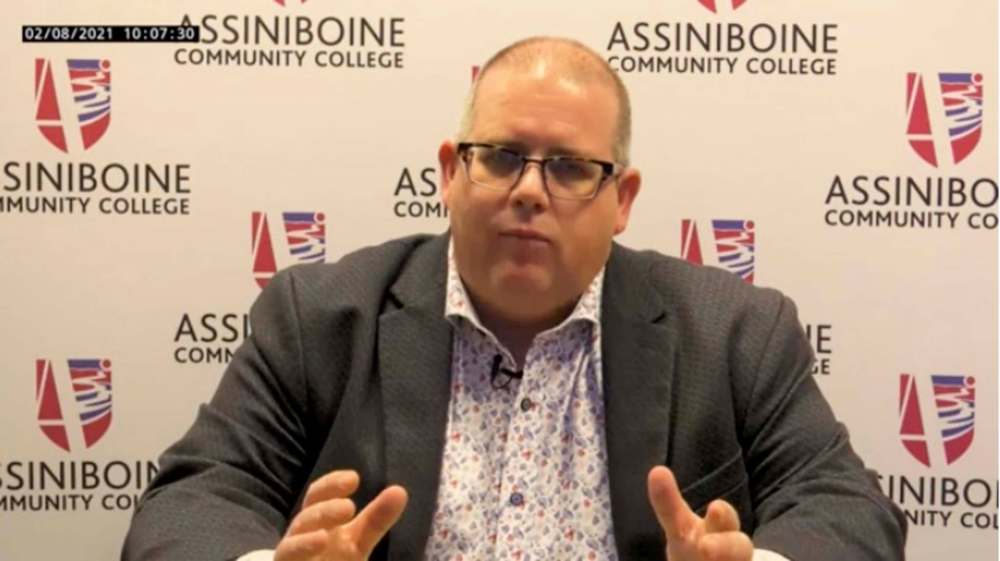BU, ACC endorse new skills strategy
Advertisement
Read this article for free:
or
Already have an account? Log in here »
We need your support!
Local journalism needs your support!
As we navigate through unprecedented times, our journalists are working harder than ever to bring you the latest local updates to keep you safe and informed.
Now, more than ever, we need your support.
Starting at $15.99 plus taxes every four weeks you can access your Brandon Sun online and full access to all content as it appears on our website.
Subscribe Nowor call circulation directly at (204) 727-0527.
Your pledge helps to ensure we provide the news that matters most to your community!
To continue reading, please subscribe:
Add Brandon Sun access to your Free Press subscription for only an additional
$1 for the first 4 weeks*
*Your next subscription payment will increase by $1.00 and you will be charged $20.00 plus GST for four weeks. After four weeks, your payment will increase to $24.00 plus GST every four weeks.
Read unlimited articles for free today:
or
Already have an account? Log in here »
Hey there, time traveller!
This article was published 09/02/2021 (1713 days ago), so information in it may no longer be current.
Several post-secondary school presidents came out in support of the province’s new Skills, Talent and Knowledge Strategy, including the heads of both Brandon University and Assiniboine Community College.
Advanced Education, Skills and Immigration Minister Wayne Ewasko publicly unveiled this new strategy on Monday morning, revealing that a different approach to rebuilding the economy was needed following the disruptive influence of the COVID-19 pandemic.
As such, over the past year, the province consulted with various post-secondary schools, businesses and sector council partners to develop this guideline that will hopefully put Manitoba on the right path to economic recovery.

“The goal of this strategy is to ensure we have people with the right skills, at the right time, to quickly rebound from the pandemic, ensure resilience and support economic growth, now and again into the future,” Ewasko said on Monday.
The document itself has four key objectives, including:
• anticipating skills needed for the future;
• aligning education and training to labour market needs and helping students succeed;
• fostering entrepreneurial and innovative skills; and
• growing, attracting and retaining talent.
To help spell out the significance of each pillar, Ewasko played a video featuring the heads of different post-secondary institutions, who explained how their schools will benefit from an increased focus on these specific objectives.
For example, Assiniboine president Mark Frison revealed how step two is important for his institution, which is so “hardwired” into the community and the broader agricultural industry in Manitoba.
“Aligning your programs with the labour market is second nature,” Frison said. “Whether that’s adapting programs based on 35 plus program reviews we’ve done over the last five years, or adding new programs like we’ve done through our Centre for Animal Proteins as a result of trying to address (the reality) that one in five jobs in the agricultural sector will go unfilled by 2025.”
Meanwhile, BU president David Doherty said his school has always been a big proponent of “innovation and entrepreneurship,” since they normally attract students from all over the Westman area.
“BU is proud to welcome 80 per cent of our students from Manitoba, with nearly 90 per cent of those from right here in our region,” said Doherty.

“Better yet, three-quarters of our graduates choose to stay here (in Brandon), putting down roots and putting their innovative and entrepreneurial skills to work, building Manitoba’s economic, social and cultural institutions.”
Moving forward, Ewasko said this new strategy will serve as a three-year “living document,” which will be continually edited and updated as the province receives feedback from various stakeholders like BU and ACC.
Plus, throughout this time, the province will be looking to complete some short- and medium-term objectives using this strategy that will further their overarching goal of economic recovery.
One of these medium-term objectives involves increasing the number of joint programs between provincial colleges and universities, like engineering pathways.
“We’re showing that we’re listening and we’re willing to collaborate with our many stakeholders throughout the province, and that goes with post-secondary institutions, business, students, various different communities, First Nations,” said Ewasko. “And I look forward to seeing these strategies come to fruition over the next three years.”
Anyone who would like to read the province’s new Skills, Talent and Knowledge Strategy in its entirety can do so by visiting gov.mb.ca/mbskills.
» kdarbyson@brandonsun.com
» Twitter: @KyleDarbyson
